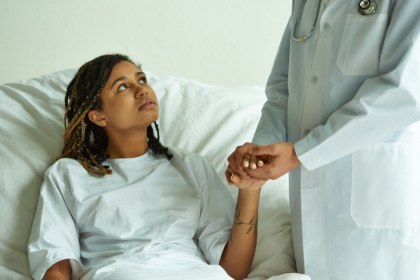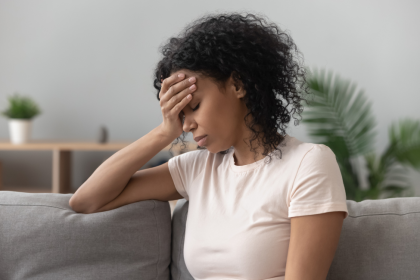
Social media has become a platform where people can repeatedly view violent acts. The repetition of seeing violence can create stress.
Rolling out spoke to Patrice N. Douglas, a licensed therapist, certified anger management specialist and certified parent-child interaction therapist, to describe the symptoms that indicate a person has moved beyond the grieving process and into a deep depression.
How do gun violence, rape and poverty mentally affect our Black communities?
Those things create post-traumatic stress disorder (PTSD) within our community. You don’t need to watch every video on social media. You don’t need visual proof that something has happened. Seeing it and hearing it — the gory details over and over —[means] we become fearful for our lives [and] we become fearful of being Black in dealing with this world. It creates a lot of stress.
We start thinking that [people in] our community [have] a target on our backs, and there’s nothing we can do about it but just wait until it’s our turn. It’s important that we don’t saturate ourselves with listening to these things because it can play a heavy part in how you feel mentally. We have no idea how much hearing this day in and day out is literally creating mental illnesses for us.
When can you tell that their grief has turned into depression? What are some symptoms that we should look for, and what should we do?
If you are feeling like your life is meaningless, if you are not taking care of yourself, if you are not showering, if you are not eating, if you are not paying your bills, if you are having panic attacks, if you have more outbursts toward people because you are angry and don’t know why, if you are drinking a lot more, if you are smoking a lot more, if you are popping more pills — these are things that are not typical during the grieving process.
You might want to sleep because you don’t want to think about the loss. Your appetite might even be off for a couple of days, or you might feel like how are you going to get through this. These are the natural things we may feel within the first few days to a week of grieving, but if it’s carrying on [into] two weeks, three weeks or six months, there’s a problem.
If you experience these things, you should seek help or talk to a therapist because it’s not normal for you to continue to feel that way week after week or month after month.
















